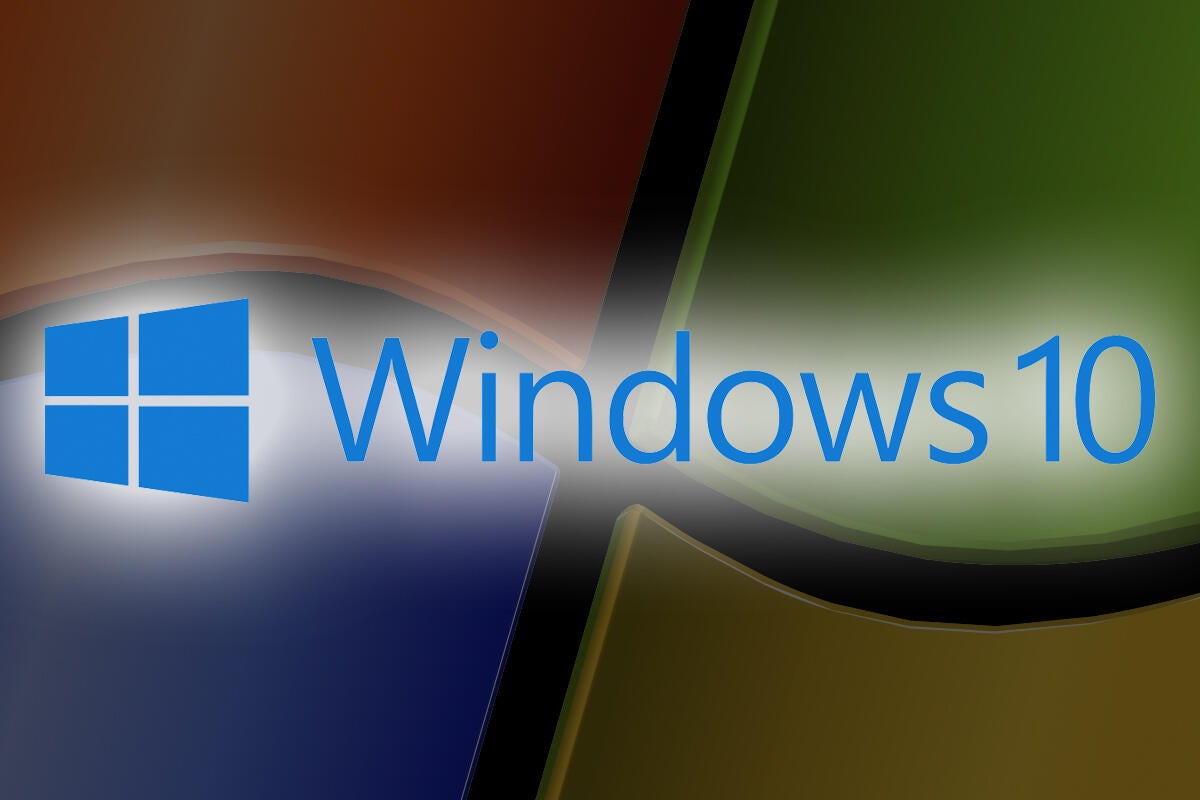Music
Trailers
DailyVideos
India
Pakistan
Afghanistan
Bangladesh
Srilanka
Nepal
Thailand
StockMarket
Business
Technology
Startup
Trending Videos
Coupons
Football
Search
Download App in Playstore
Download App
Best Collections
Technology

Itthe mid-1980s, and this pilot fish is working on a project to convert his companypayroll system from one proprietary mainframe to a newer model.
&After converting the system, we did parallel runs for the same week between old and new hardware,& says fish.
And lo and behold, the newer hardware comes up with a total payroll that8 cents less than the run on the old hardware. An intense effort over a long weekend is required to uncover the problem. What fishteam finds in the end is that the 8-cent difference is spread among three hourly employees— the only people who received pay raises that week.
Digging into the calculation of the hourly rate, fish and his team discover that itcalculated in COBOL to nine decimal places, and then rounded to three decimal places in an unusual way: The last six decimal places are split off, and if the value is greater than zero, the third decimal place is rounded up by one.
To read this article in full, please click here
- Details
- Category: Technology
Read more: Flashback Friday: Give them a headache and they might be generous
Write comment (98 Comments)
Microsoft will soon begin nagging users running Windows 7 Professional to remind them that the operating system is soon to be shelved.
"We are now extending the notifications to Windows 7 Pro[fessional] devices to ensure our customers are aware of the end of support for Windows 7 and can take action to remain productive and secure," says an Oct. 15 update to a company blog post first published in March.
[ Related: Windows 7 to Windows 10 migration guide ]The original post confirmed that Microsoft would push notifications to Windows 7 systems in the months ahead - reprising a move it made in 2014 prior to Windows XP's retirement - but at the time, the company said nothing about limiting the on-screen alerts to Windows 7 Home Premium.
To read this article in full, please click here
- Details
- Category: Technology
Read more: Microsoft starts nagging Windows 7 Pro users about end of support
Write comment (94 Comments)
As fintech investments soar to new heights, investors are looking at the bottom and top levels of the services stack to find the next billion-dollar startups.
Thatthe word from seasoned investors like Andreessen Horowitz managing director, Angela Strange, who has invested in a number of successful financial services technology companies. For Strange and Chris Britt, co-founder and chief executive of financial services startup Chime Bank, the best opportunities are in customer-facing financial services and specific infrastructure opportunities that can support those businesses.
For many large companies, financial services are already entering a twilight period. Markets like consumer and student lending, banking and financial management and business lending are becoming more crowded, and companies like Affirm, Betterment, Brex, Chime Bank, CommonBond, Kabbage, Robinhood, SoFi, Wealthfront and many others have raised hundreds of millions so they can take on established players in banking and finance.
Investments into financial technology companies in the U.S. exploded in 2019 with at least $12.7 billion flowing in the first half of the year alone. That figure — a 60% jump in dollars committed — came even as the number of deals remained relatively steady, according to data from Accenture.
Increasing capital commitments were even more pronounced in Europe and the United Kingdom, where a fintech boom has nearly doubled the amount of money committed to startups over the first half of 2019 from a year-ago period.
- Details
- Category: Technology
Read more: Where are US fintech’s next billion-dollar startups
Write comment (90 Comments)Alphabet -owned drone delivery spin-out Wing is starting to service U.S. customers, after becoming the first drone delivery company to get the federal go-ahead to do so earlier this year. Wing is working with FedEx Express and Walgreens on this pilot, and their first customers are Michael and Kelly Collver, who will get a &cough and cold pack,& which includes Tylenol, cough drops, facial tissues, Emergen-C and bottled water (do people who have colds need bottled water?).
The Collvers are receiving their package in Christianburg, Va., which is where Wing and Walgreens will run this inaugural pilot of the drone delivery service. Walgreens gets a noteworthy credit in the bargain, becoming the first U.S. retailer to do a store-to-customer doorstep delivery via drone, while FedEx will be the first logistics provider to deliver an e-commerce drone delivery with a separate shipment.
Wing is also working with VirginiaSugar Magnolia, a retailer local to the state, and that part of the equation is focused on proving out how Wing and drone delivery can service last-mile e-commerce customers at their homes. Sugar Magnolia customers can get small items, including chocolates and paper goods, delivered directly to them via drone through the new pilot.

Wing was able to do this with a new Air Carrier Certificate from the FAA that clears it for expanded service, specifically allowing Wingpilots to manage multiple aircraft flying without any human pilot on board at the same time, while providing service to the public.
Ita big milestone when it comes to U.S.-based drone delivery, and another sign that people should get ready for these services to start to be a more regular fixture. Earlier this month, UPS also secured FAA approval to operate a commercial drone delivery service, so the trials will probably come fast and furious at this point — though widespread service is probably still quite a ways off as both regulators and operators look to learn from their first limited deployments.
- Details
- Category: Technology
Read more: Alphabet’s Wing begins making first commercial drone deliveries in the US
Write comment (95 Comments)The Daily Crunch is TechCrunchroundup of our biggest and most important stories. If you&d like to get this delivered to your inbox every day at around 9am Pacific, you can subscribe here.
1. Zuckerberg on Chinese censorship: Is that the internet we want?
The Facebook CEO spoke yesterday at Georgetown University, sharing his thoughts on speech and &how we might address the challenges that more voice and the internet introduce, and the major threats to free expression around the world.&
Among his arguments: China is exporting its social values, political ads are an important part of free expression and the definition of dangerous speech must be kept in check.
2. Atlassian acquires Code Barrel, makers of Automation for Jira
Sydney-based Code Barrel was founded by two of the first engineers who built Jira at Atlassian, Nick Menere and Andreas Knecht. With this acquisition, they are returning to Atlassian after four years in startup land.
3. Swarm gets green light from FCC for its 150-satellite constellation
Swarm Technologies aims to connect smart devices around the world with a low-bandwidth but ever-present network provided by satellites — and it just got approval from the FCC to do so. Apparently the agency is no longer worried that Swarmsandwich-sized satellites are too small to be tracked.
4. Nintendo Switch hits another sales milestone
NintendoNorth American Switch unit sales have already surpassed the lifetime worldwide unit sales of the Wii U. The company announced Thursday that they had sold 15 million units of the popular handheld console in North America.
5. HBO Max scores all 21 Studio Ghibli films
WarnerMedia has been on a shopping spree for its HBO Max service. It bought the rights to &Friends& and &The Big Bang Theory,& and now itusing its outsized checkbook to bring beloved Japanese animation group Studio Ghiblifilms onto the web exclusively on its platform for U.S. subscribers.
6. Volvo creates a dedicated business for autonomous industrial and commercial transport
The vehicle-maker has already been active in putting autonomous technology to work in various industries, with self-driving projects at quarries and mines, and in the busy port located at Gothenburg, Sweden.
7. How Unity built the worldmost popular game engine
Unitygrowth is a case study of Clayton Christensentheory of disruptive innovation. While other game engines targeted the big AAA game makers at the top of the console and PC markets, Unity went after independent developers with a less robust product that was better suited to their needs and budget. (Extra Crunch membership required.)

- Details
- Category: Technology
Read more: Daily Crunch: Zuckerberg has thoughts on free speech
Write comment (96 Comments)
Harley-Davidson has resumed production and deliveries of its electric LiveWire motorcycle after determining an issue with charging was isolated to a single vehicle.
Harley-Davidson halted production and delivery of its first electric motorcycle earlier this week after discovering what it described at the time as a &non-standard condition.& Harley-Davidson didn&t recall any of the LiveWire motorcycles already on the road, but it did stop production and deliveries, and began additional testing and analysis.
At the time, Harley-Davidson didn&t explain what the non-standard issue was, but TechCrunch has since learned that it was a charging-related problem on one motorcycle.
&After completing rigorous analysis this week, we have resumed LiveWire production and deliveries,& Harley-Davidson said in a comment emailed to TechCrunch. &Customers may continue riding their LiveWire motorcycle and are able to charge the motorcycle through all methods. Temporarily stopping LiveWire production allowed us to confirm that the non-standard condition identified on one motorcycle was a singular occurrence.&
The company added that this incident shows that its quality assurance measures are working as designed.
The production stoppage put a damper onHarley-Davidsonfirst foray into electrification just weeks after deliveries of LiveWire began to ramp up. The $29,799, 105 horsepower electric motorcycle was to be the first of a future line-up of EVs from Harley-Davidson spanning motorcycles, bicycles and scooters.
The LiveWire, which is meant to complement, not replace, Harley-Davidsonpremium internal-combustion cruiser motorcycles, went into production in 2019. Delivery to dealers began September 27.
- Details
- Category: Technology
Read more: Harley-Davidson has resumed production of the LiveWire
Write comment (91 Comments)Page 594 of 5614

 16
16





